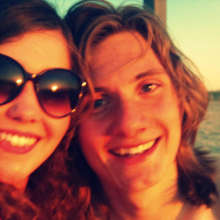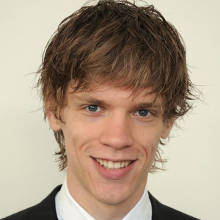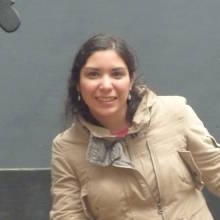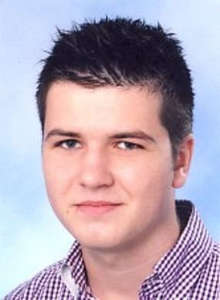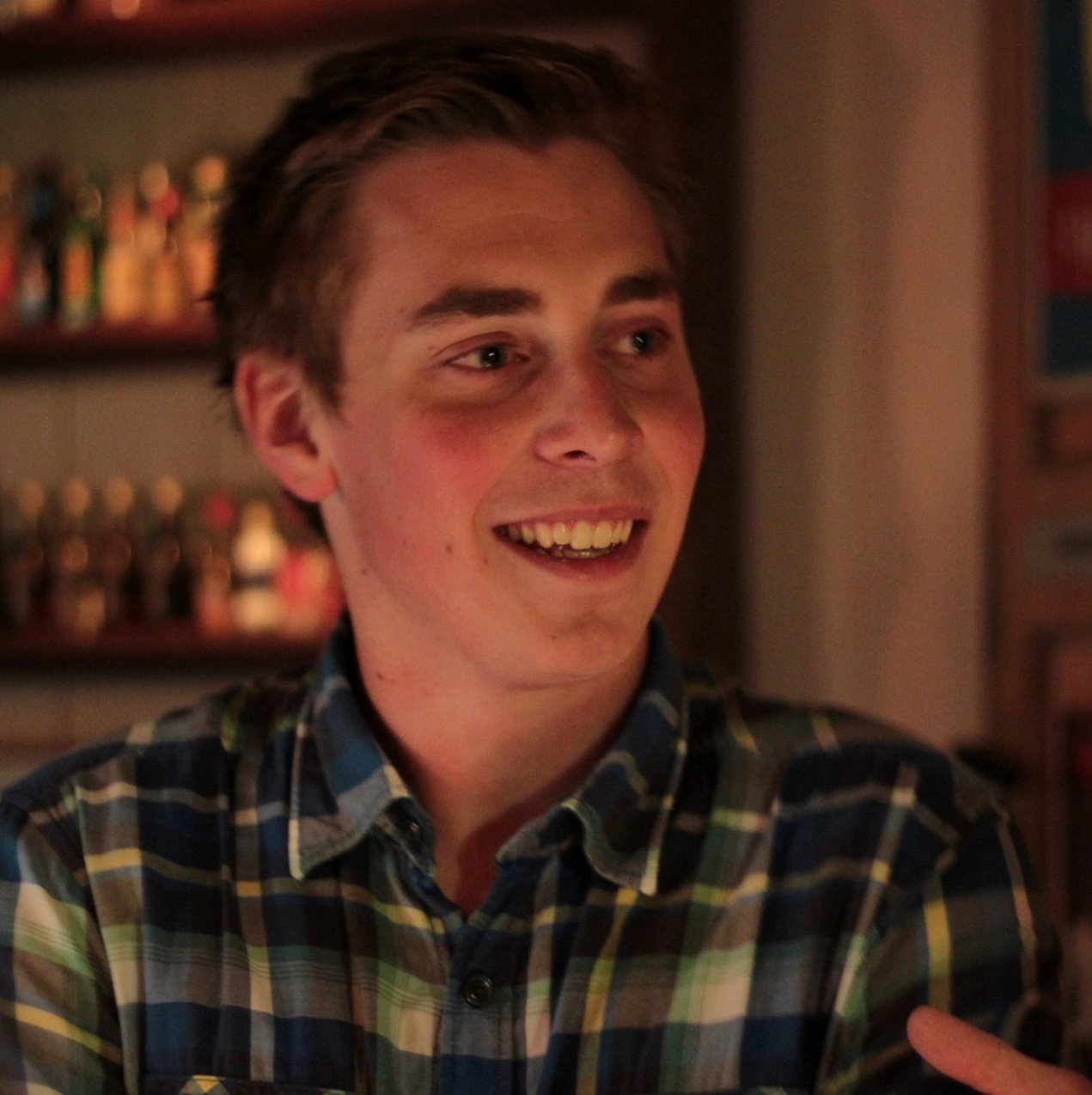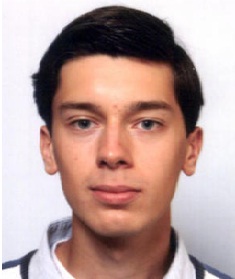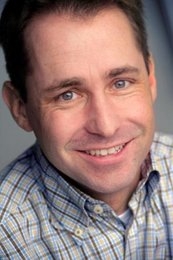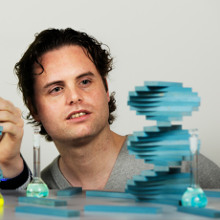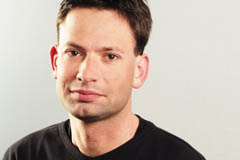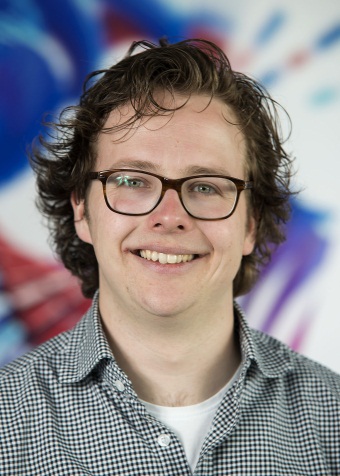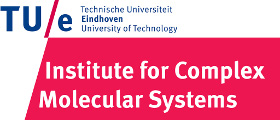Team:TU-Eindhoven/Team
From 2013.igem.org
(Difference between revisions)
(→About Us) |
JacquesErnes (Talk | contribs) |
||
| (14 intermediate revisions not shown) | |||
| Line 1: | Line 1: | ||
{{:Team:TU-Eindhoven/Template:Base}} | {{:Team:TU-Eindhoven/Template:Base}} | ||
{{:Team:TU-Eindhoven/Template:MenuBar}} | {{:Team:TU-Eindhoven/Template:MenuBar}} | ||
| - | |||
| - | |||
=About Us= | =About Us= | ||
{{:Team:TU-Eindhoven/Template:Lead}} | {{:Team:TU-Eindhoven/Template:Lead}} | ||
| - | 2013 is the second year that the Eindhoven University of Technology is participating in the iGEM competition. Our teams consists of seven diverse students with a variety of backgrounds. We have had a lot of aid from different people across the University, in particular from Tom de Greef, Maarten Merkx | + | 2013 is the second year that the Eindhoven University of Technology is participating in the iGEM competition. Our teams consists of seven diverse students with a variety of backgrounds. We have had a lot of aid from different people across the University, in particular from Tom de Greef, Maarten Merkx, Natal van Riel and Stijn Aper. Below you will find an overview of the team and a personal message from each member. |
{{:Team:TU-Eindhoven/Template:LeadEnd}} | {{:Team:TU-Eindhoven/Template:LeadEnd}} | ||
| + | |||
| + | {{:Team:TU-Eindhoven/Template:Float | position=left | size=12 }} | ||
| + | [[File:TU-Eindhoven_team.jpg | link= ]] | ||
| + | {{:Team:TU-Eindhoven/Template:FloatEnd | caption=The TU-Eindhoven 2013 iGEM Team! | id=TeamPic }} | ||
{{:Team:TU-Eindhoven/Template:TeamMember | name=Ardjan | ext=jpg | team=Lab | role=Captain | more=Lab Lad | labelstyle=important }} | {{:Team:TU-Eindhoven/Template:TeamMember | name=Ardjan | ext=jpg | team=Lab | role=Captain | more=Lab Lad | labelstyle=important }} | ||
| - | Currently I am partaking in the second year of my bachelor Biomedical Technology here at the TU/e. Whilst thoroughly enjoy my courses I am always looking to do more and to put my theory into practice. The iGEM competition gave me the perfect opportunity to do this, allowing me to spend time working on research of my own choosing, and giving me the chance to spend time in the lab. Outside the university I spend my time keeping up with my favorite TV shows or, weather permitting, on the road bike. | + | Currently I am partaking in the second year of my bachelor Biomedical Technology here at the TU/e. Whilst I thoroughly enjoy my courses I am always looking to do more and to put my theory into practice. The iGEM competition gave me the perfect opportunity to do this, allowing me to spend time working on research of my own choosing, and giving me the chance to spend time in the lab. Outside the university I spend my time keeping up with my favorite TV shows or, weather permitting, on the road bike. |
{{:Team:TU-Eindhoven/Template:TeamMemberEnd | quote=If you don't like penguins I don't like you. | quoteby=Ardjan}} | {{:Team:TU-Eindhoven/Template:TeamMemberEnd | quote=If you don't like penguins I don't like you. | quoteby=Ardjan}} | ||
| Line 53: | Line 55: | ||
Stijn Aper studied Biomedical Engineering at the Eindhoven University of Technology and obtained his MSc in 2012. Currently, he is doing his PhD research at the Eindhoven University of Technology with dr. Merkx. The topic of his master research project was the development of a genetically-encoded, modular antibody sensor for application in low cost point-of-care diagnostic assays. In his PhD project his focus shifted towards unraveling the molecular mechanisms behind complex cellular behavior. At the moment he applies a synthetic biology type of approach to develop modular protein switches to interfere with intracellular Zn<sup>2+</sup> homeostasis and signaling. | Stijn Aper studied Biomedical Engineering at the Eindhoven University of Technology and obtained his MSc in 2012. Currently, he is doing his PhD research at the Eindhoven University of Technology with dr. Merkx. The topic of his master research project was the development of a genetically-encoded, modular antibody sensor for application in low cost point-of-care diagnostic assays. In his PhD project his focus shifted towards unraveling the molecular mechanisms behind complex cellular behavior. At the moment he applies a synthetic biology type of approach to develop modular protein switches to interfere with intracellular Zn<sup>2+</sup> homeostasis and signaling. | ||
{{:Team:TU-Eindhoven/Template:TeamMemberEnd | name=Stijn Aper | quote= | quoteby= }} | {{:Team:TU-Eindhoven/Template:TeamMemberEnd | name=Stijn Aper | quote= | quoteby= }} | ||
| - | |||
| - | |||
| - | |||
| Line 62: | Line 61: | ||
{{:Team:TU-Eindhoven/Template:BaseFooter}} | {{:Team:TU-Eindhoven/Template:BaseFooter}} | ||
{{:Team:TU-Eindhoven/Template:Sponsors}} | {{:Team:TU-Eindhoven/Template:Sponsors}} | ||
| + | <html> | ||
| + | <script> | ||
| + | $('#tue-teammember-d-Ardjan img').mouseover(function() { | ||
| + | var dWidth = $(document).width() - 200, // 100 = image width | ||
| + | dHeight = ($(document).height()/10) - 200, // 100 = image height | ||
| + | nextX = Math.floor(Math.random() * dWidth), | ||
| + | nextY = Math.floor(Math.random() * dHeight); | ||
| + | $(this).animate({ left: nextX + 'px', top: nextY + 'px' }); | ||
| + | }); | ||
| + | </script> | ||
| + | </html> | ||
{{:Team:TU-Eindhoven/Template:SetTitle | menu=team | page=Team }} | {{:Team:TU-Eindhoven/Template:SetTitle | menu=team | page=Team }} | ||
{{:Team:TU-Eindhoven/Template:SetHeader | nr=1}} | {{:Team:TU-Eindhoven/Template:SetHeader | nr=1}} | ||
Latest revision as of 09:54, 26 October 2013



About Us
2013 is the second year that the Eindhoven University of Technology is participating in the iGEM competition. Our teams consists of seven diverse students with a variety of backgrounds. We have had a lot of aid from different people across the University, in particular from Tom de Greef, Maarten Merkx, Natal van Riel and Stijn Aper. Below you will find an overview of the team and a personal message from each member.
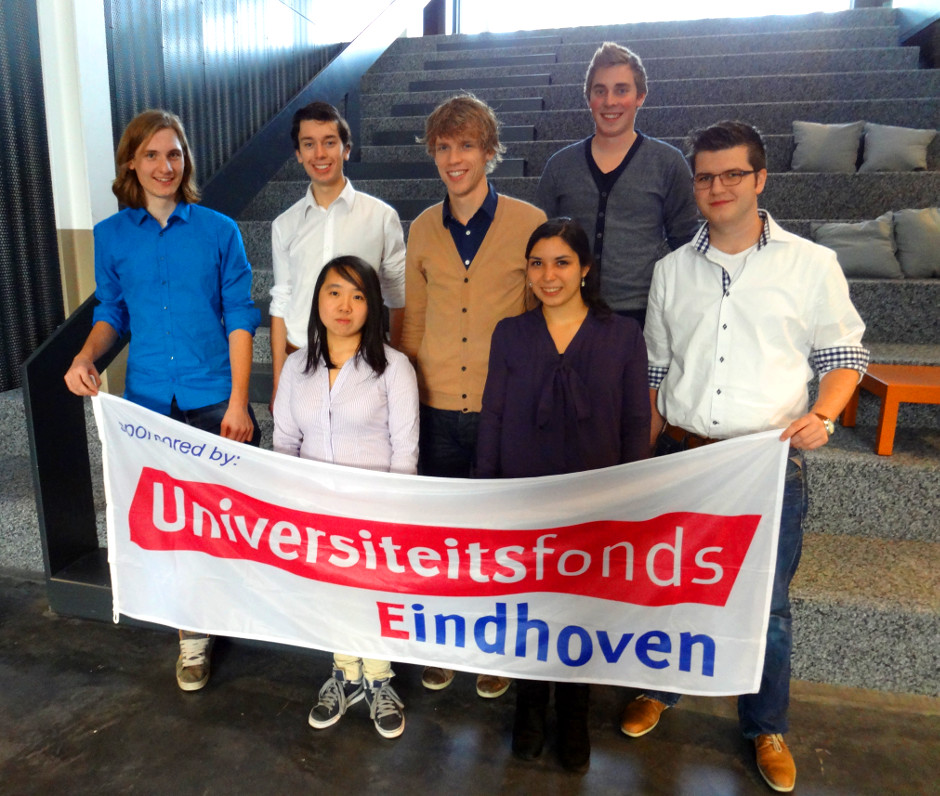
TeamPic The TU-Eindhoven 2013 iGEM Team!
ArdjanLabCaptainLab Lad
Currently I am partaking in the second year of my bachelor Biomedical Technology here at the TU/e. Whilst I thoroughly enjoy my courses I am always looking to do more and to put my theory into practice. The iGEM competition gave me the perfect opportunity to do this, allowing me to spend time working on research of my own choosing, and giving me the chance to spend time in the lab. Outside the university I spend my time keeping up with my favorite TV shows or, weather permitting, on the road bike.If you don't like penguins I don't like you.
Ardjan
PascalModelingCaptainWiki Wizard
I am a bachelor student in Biomedical Engineering at the TU/e. Classes in biochemistry and the molecular biology of the cell raised my interest in synthetic biology. Since the field is relatively new there is a vast range of possibilities for research in synthetic biology. By competing in the iGEM competition I hope to open doors to new opportunities using my Biomedical background. Furthermore it will be a big - though very interesting - challenge to set up a whole research. However, I am confident that with this great team of students we will be capable of doing great research!I don't like penguins.
Pascal
ZandraModelingModeling MagicianWiki Minion
I am a Biomedical Engineering master student at the TU/e. I am originally from Mexico, but after finishing my bachelor on Biomedical Engineering there I decided to come to The Netherlands to continue with my studies and seek greater challenges. I love being involved in many things at the same time, the more the merrier, especially if they put my brains to the test! iGEM has definitely given me that extra something that I always enjoy, making me get involved not only in modeling and programming, which I really like, but also in the lab. When I am not busy with the iGEM or my master studies I like reading a good book and running, dancing or just keeping myself active.Killing 'm All!
Zandra
NickLabCorrespondent of External AffairsHuman Practices
As a Biomedical Engineering student, I'm always interested in some complicated and interesting things. For me, the major reason to take part at the iGEM team of this year was doing research in a quite young field of science and engineering. Now I can bring the basic knowledge of theoretical courses into practice, which I think is nice and very usefull for a better understanding of the theory. I think iGEM is a nice opportunity to widen my horizon, improve my academical skills and to learn a lot about this interesting and emerging field of science.I don't have a quote yet...
Nick
YicongModelingStochastics Sensei
I'm currently enrolled in master program Biomedical Engineering at TU/e. My bachelor was mechanical engineering. But I thought Biomedical engineering is a newly-emerged challenging area so I switched to it. It turns out to be a rewarding decision as I learned a lot from the lectures and I found many similarities in both engineering subjects. Now I would like to try some projects to get deeper understanding of engineering principles so I parcitipated in the iGEM team.企鹅是最好的!
Yicong
JacquesLabThe ProtegéJoker
Finishing the third year of my bachelor in Biomedical Engineering at the TU/e I thought iGEM 2013 was the perfect project to do as my final project. Having been fascinated by the intracellular world since my first ever biology class, a synthetic biology competition seems like a logical sequel. By participating in the competition I hope to further improve my collaboration and lab skills. Next to that it's just really fun to have your own little research group running.Look out! ... Eag1!!!
Jacques & JD (Scrubs)
SanderLabSDS Sander
Since my enrollment as a Biomedical Engineering bachelor student at the TU/e, I have thoroughly enjoyed the wide range of subjects involved in this study. Being an extraordinary and internationally reknown challenge, participation in iGEM allows me to dive into the interesting discipline of Synthetic Biology, which I consider to continue for my Master's. Furthermore, our iGEM project offers valuable opportunities to improve my lab skills, while also enabling me to learn about the entire pathway from fundamental research to functional clinical applications.Too basic or not too basic, that is the question.
Gerrit
Supervisors
dr. Maarten MerkxLabAssociate ProfessorBiomedical Chemistry & Chemical Biology
Maarten Merkx (1970) studied chemistry (cum laude) at the Radboud University Nijmegen specializing in organic chemistry (Prof. Nolte) and biophysical chemistry (Prof. de Grip). He did his PhD with Prof. Bruce A. Averill (University of Amsterdam, 1995-1999) studying metalloenzyme catalysis and was a Human Frontier of Science Program (HFSP) post-doctoral fellow with Prof. Stephen J. Lippard (MIT, Cambridge, USA) studying methane monooxgenases. In his scientific work he combines a fundamental interest in the molecular origin of biomolecular recognition with a strong desire to apply and test this knowledge through the engineering of protein-based tools that allow the imaging of molecular processes in live cells or organisms. An important research theme is to develop generic engineering concepts for the construction of protein switches and apply these as sensors and regulators for intracellular imaging, synthetic biology and molecular diagnostics. In 2006 he was awarded both a young investigator grant from the HFSP and a VIDI award by the Netherlands Organization of Scientific Research (NWO).
dr.ir. Tom F.A. de GreefModelingAssistant ProfessorComputional Biology
Dr. Ir. Tom de Greef was born in Eindhoven, the Netherlands, in 1980. He studied at the University of Eindhoven (TU/e, the Netherlands), where he received his M.Sc. degree in Biomedical Engineering cum laude in 2004. He completed his Ph.D. at the Department of Chemistry at the same university in 2008 with professors E. W. Meijer and R. P. Sijbesma. The subject of his Ph.D. work concerned the synthesis of novel materials based on quadruple hydrogen bonding motifs. Subsequently, he moved to the Biomodeling and Bioinformatics group of prof. P. A. J. Hilbers at the Department of Biomedical Engineering (TU/e) and focused on the kinetic modeling of a large variety of self-assembling systems using deterministic as well as stochastic modeling approaches. In 2010, Tom de Greef started as assistant professor (tenure track) in Physical Chemistry at the Department of Biomedical Engineering and the Institute for Complex Molecular Systems at the TU/e. His work has been directed towards understanding the physical basis for the self-assembly of artificial and biological molecules using a combined experimental and theoretical approach.
dr.ir. Natal A.W. van RielModelingAssistant ProfessorComputional Biology
Dr. Natal van Riel (1973) received his MSc degree from the Department of Electrical Engineering at Eindhoven University of Technology in 1995. In 2000 he obtained a PhD degree in Molecular Cell Biology from Utrecht University (Prof. Verrips; Netherlands) for research on integrating computational modeling and experimental work to study complex biochemical networks. The research was carried out in the Biotechnology group of Unilever Research Vlaardingen. From 2000 to 2003 he worked in the Department of Electrical Engineering of Eindhoven University of Technology investigating the application of system and control theory to understand biological processes. In 2003 he was appointed as assistant professor in the Department of Biomedical Engineering at the same university and initiated Systems Biology research in Eindhoven. This research was expanded when he joined the BioModeling and bioInformatics group (Prof. Hilbers) in 2006 to lead the Computational Systems Biology research program, investigating complex, multi-factorial human diseases.
Stijn Aper MSc.LabLab Guidance
Stijn Aper studied Biomedical Engineering at the Eindhoven University of Technology and obtained his MSc in 2012. Currently, he is doing his PhD research at the Eindhoven University of Technology with dr. Merkx. The topic of his master research project was the development of a genetically-encoded, modular antibody sensor for application in low cost point-of-care diagnostic assays. In his PhD project his focus shifted towards unraveling the molecular mechanisms behind complex cellular behavior. At the moment he applies a synthetic biology type of approach to develop modular protein switches to interfere with intracellular Zn2+ homeostasis and signaling.
Click here to go to the official iGEM page of the 2013 iGEM team of the Eindhoven University of Technology.
 "
"
